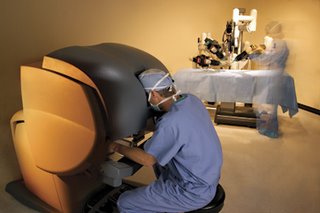
Over the past year, I have been amazed at how fast robotic surgery is becoming the standard for patients who need surgery for their prostate cancer. Even surgeons who don't perform robotics have decided to refer patients to me as a service to their patients. Initially, I thought that the learning curve for robotics would be too steep for busy surgeons to fully master. That's why I took a year to do a fellowship and travel to see expert surgeons perform cases. Now that I have done hundreds of cases and travel to "proctor" new robotic surgeons as they do cases, my original opinion has changed a bit.
If a surgeon is dedicated enough, there are finally enough good surgical videos and trained proctors available to considerably shorten the learning curve. How many cases? I'm not sure, but I still would not want to be one of the initial 25 patients or so. The robot is just a fancy powertool. If you know how to use it, you can do great things. Otherwise you could risk a lot of damage to the patient and to yourself. A useful website by Intuitive Surgical lists surgeons who have done at least 20 cases. Now that I have been doing this for a while, I can tell you that is a ridiculously low number and the literature supports a much higher number. I suggest that you should look for surgeons who have done at least a thousand cases!